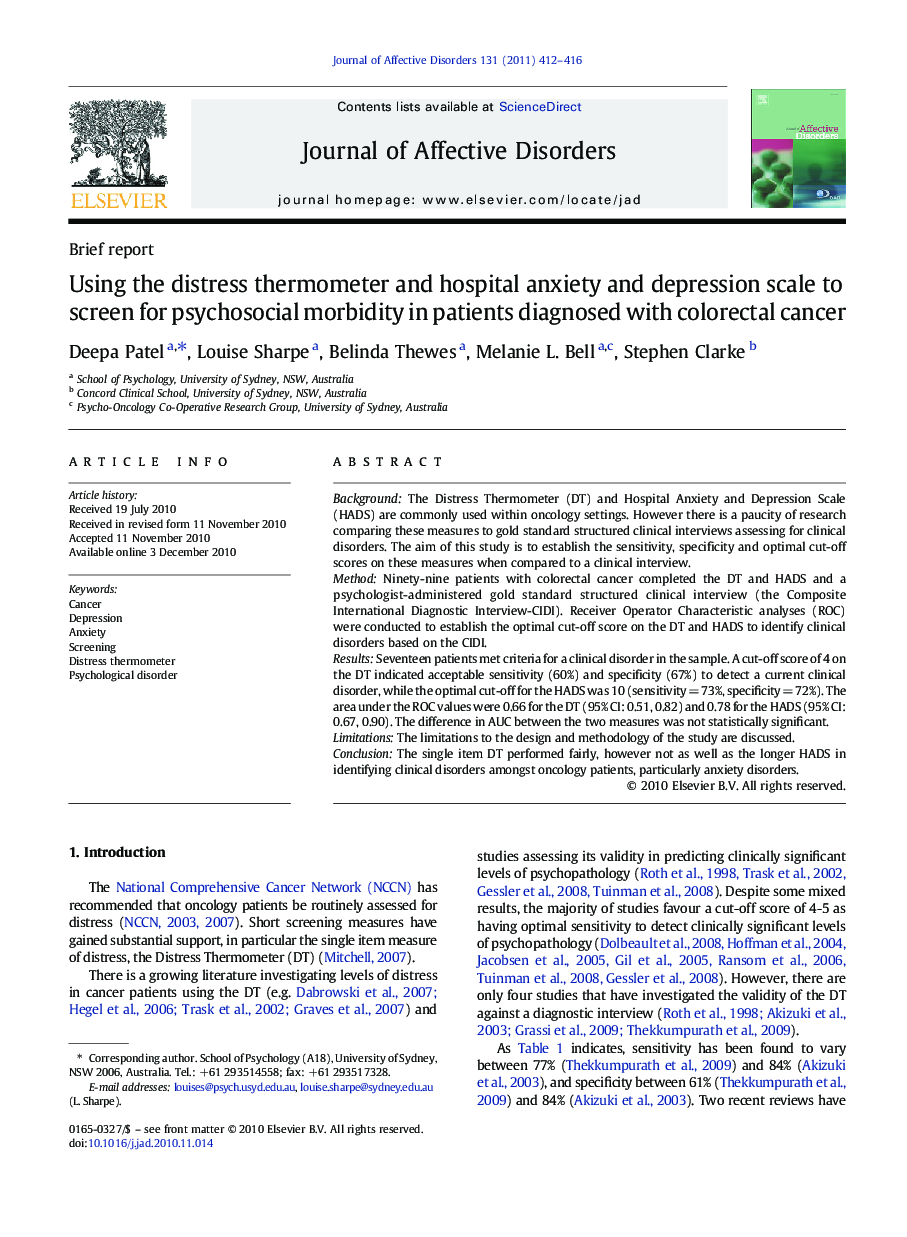| Article ID | Journal | Published Year | Pages | File Type |
|---|---|---|---|---|
| 6235843 | Journal of Affective Disorders | 2011 | 5 Pages |
BackgroundThe Distress Thermometer (DT) and Hospital Anxiety and Depression Scale (HADS) are commonly used within oncology settings. However there is a paucity of research comparing these measures to gold standard structured clinical interviews assessing for clinical disorders. The aim of this study is to establish the sensitivity, specificity and optimal cut-off scores on these measures when compared to a clinical interview.MethodNinety-nine patients with colorectal cancer completed the DT and HADS and a psychologist-administered gold standard structured clinical interview (the Composite International Diagnostic Interview-CIDI). Receiver Operator Characteristic analyses (ROC) were conducted to establish the optimal cut-off score on the DT and HADS to identify clinical disorders based on the CIDI.ResultsSeventeen patients met criteria for a clinical disorder in the sample. A cut-off score of 4 on the DT indicated acceptable sensitivity (60%) and specificity (67%) to detect a current clinical disorder, while the optimal cut-off for the HADS was 10 (sensitivity = 73%, specificity = 72%). The area under the ROC values were 0.66 for the DT (95% CI: 0.51, 0.82) and 0.78 for the HADS (95% CI: 0.67, 0.90). The difference in AUC between the two measures was not statistically significant.LimitationsThe limitations to the design and methodology of the study are discussed.ConclusionThe single item DT performed fairly, however not as well as the longer HADS in identifying clinical disorders amongst oncology patients, particularly anxiety disorders.
